BOONE, N.C. — Appalachian State University’s solar vehicle team, Team Sunergy, blazed through the 2021 American Solar Challenge (ASC) — finishing in first place for multiple-occupant vehicles (MOV), winning all three stages of the race from Missouri to New Mexico and clocking a total of 964.8 miles. The team also took top awards for teamwork and electrical design.
App State Chancellor Sheri Everts applauded Team Sunergy, saying they “are the epitome of true Mountaineer spirit. Our App State team excelled among a roster of highly elite institutions. I am extraordinarily proud of their ingenuity, perseverance and teamwork.”
App State was one of nine university teams — including MIT, University of California, Berkeley, and Georgia Tech — that qualified to compete and among only two universities that do not offer engineering programs. Six of the vehicles were new this year; three, including App State’s, had been in ASC competitions before.
Team Sunergy began in fall 2013 as a class project to build a solar-powered golf cart and developed into an interdisciplinary team of App State students, faculty and staff working together to research and develop solar-powered race cars. Supported by faculty from its inception, it was institutionalized and funded by Chancellor Everts — recognized as the team’s No. 1 fan. Team Sunergy is recognized by the international solar racing community.
App State’s team and its Cruiser Class, two-passenger vehicle — ROSE (Racing on Solar Energy) — were pitted against the University of Minnesota solar vehicle, one of the most decorated solar teams in America. They have raced in more than 30 different solar challenges on three different continents and built 13 solar cars.
Designed, built and raced by App State’s solar vehicle team in 2018, ROSE was reengineered this year by an untested team playing catch-up during a pandemic. The car has a top speed of 60 mph and a maximum range of 300 miles on a single battery charge.
“It’s a solar vehicle, but it works similar to an electrical vehicle,” explained Sam Cheatham, a senior marketing and management double major from Mills River and Team Sunergy co-business director. “A lot of teams are thinking of the race as an engineering challenge, which is great, but our school is focusing on it as a sustainability challenge. We want to be driving solar cars in the next few decades.”
To mitigate emissions from all of the support vehicles — four vans and a trailer — Team Sunergy purchases carbon offsets, Ball said.
Teamwork and engineering triumphs
Team Sunergy is divided into business, electrical and mechanical teams:
- The electrical team designed the battery and power systems.
- The mechanical team worked on the body of the car to make sure it was street ready.
- The business team was in charge of fundraising and logistical planning.
But during the competitions, team lines merged and everybody filled in whenever needed, said App State Chief Sustainability Officer and Team Sunergy Adviser Lee Ball. “I loved the way this team was fluid, not just working on their individual specialties,” he said. ”Everybody stepped up.”
The teamwork did not go unnoticed and App State walked away with the ASC Abraham Poot Teamwork Award. Team Sunergy also earned this same recognition in 2016.
Hunter Bristow ’20, a former member of Team Sunergy who served as an adviser this year, said, “This was the best team dynamic we’ve ever had at a race. Everyone worked hard but also had fun.”
Fun, sure, but the race features a punishing course and technical gotchas are rife: Batteries overheat, tires go flat, electrical systems short out and safety lights fail. “Add on top of that long hours and sleep deprivation,” Ball said. “They call it a challenge for a reason. It is grueling. Logistics alone can be a deal breaker.”
Still, “it was just cool to be part of it,” Cheatham said. “It’s a project I’ll be able to talk about for the rest of my life.”
Ball said being recognized as the team with the best electrical design was an unexpected triumph. “For a team from a university without an engineering program, this was incredible,” he said. “We held our own against competition like Georgia Tech, UC Berkeley, MIT and Kentucky — all because our team was busting it the whole time.”
This year’s team completely redesigned ROSE’s battery pack for this race, Ball said. “The win was especially impressive as the battery was seriously damaged in transit to the qualifying race at Heartland Motorsports Park.”
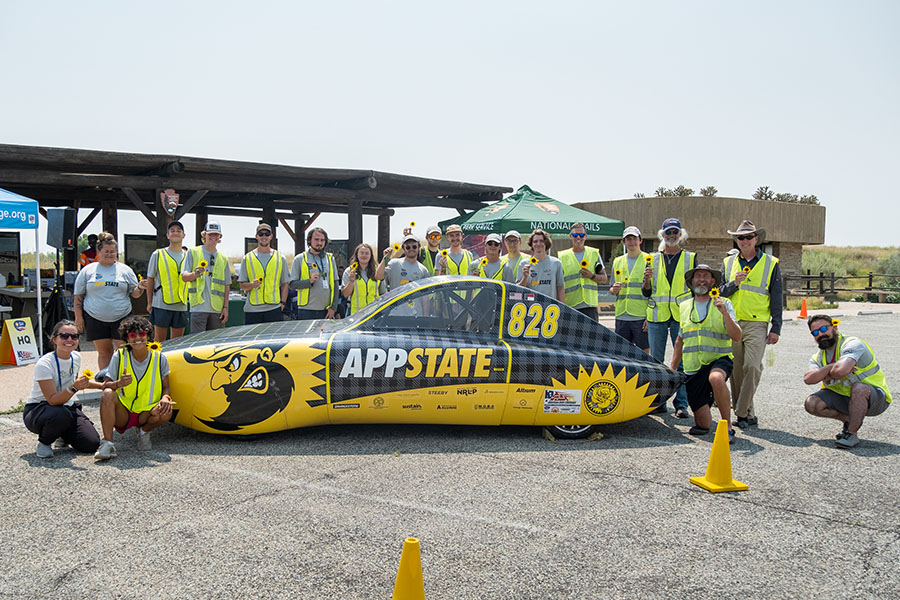
Team Sunergy members hold sunflowers at a stop in La Junta, Colorado. Pictured kneeling, from left to right, are Stephany Garcia Henao, Jessica Navarro-Luviano, App State Sustainability Data and Assessment Specialist Jim Dees and Jason Harrington. Standing, from left to right, are Danna Latiolais ’21, Nathaniel McDonald, Austin Liebgott, Jameson Mathews, Griffin Honea, Nicole Sommerdorf, Patrick Laney, Sean Riordan, Sam Cheatham, Reid Kerr, Hunter Bristow ’20, Matthew Allen ’21, App State Chief Sustainability Officer Lee Ball, Sam Prewitt, Logistics and Strategy Adviser Ray Sinclair and Lead Team Adviser Chris Tolbert. Photo by Kyla Willoughby
A rocky start, split-second finish
Ball said, for him, the most memorable moments came on day three, when the route included an almost 4,000-foot ascent with one dauntingly steep pass. The team was scheduled to pull out second from the checkpoint at Bent’s Old Fort National Historic Site in La Junta, Colorado.
The team arrived at noon to charge ROSE’s battery well before a 2 p.m. start. Due to the recent solar charge and the 93-degree heat, the car stalled just yards after pulling away from the starting line. Car after car passed as the team stood helplessly by their disabled car.
Once back on the road, another overheating caused a second delay. Team Sunergy drivers Jessica Navarro-Luviano, a senior sustainable technology major from Mocksville and co-mechanical director, and Stephany Garcia Henao, a senior in App State’s Honors College, kept ROSE at an even pace, passing several teams on the ascent before they heard Minnesota’s team was sidelined by a battery fire.
“We wanted to go slow and steady and just prove we could take the hill,” Team Sunergy Co-business Director Sean Riordan, a sophomore political science and economics double major from Campobello, wrote for the Team Sunergy blog. “It was very emotional when we finally made it over the crest. It was bittersweet, though, as we felt bad for Minnesota.”
Despite making the summit, Team Sunergy’s drivers were still under pressure to reach the team’s trailer by 6 p.m. Ball said those “two awesome, strong women” — Navarro-Luviano and Henao — brought ROSE in, touching the trailer door at exactly 6 p.m., which guaranteed no start penalty for the morning.
Team Sunergy was one of only three teams to make that summit; the remaining cars were given an option to go around.
The scoring was really close and the last day was pivotal, Ball said. The final loop was from Las Vegas, New Mexico, to Santa Fe, New Mexico, and back to Las Vegas, and Team Sunergy finished one hour and 15 minutes ahead of Minnesota.
“We did it!” Riordan wrote after the race. “We won a solar car race, and we did it with no major faults or pit stops the entire way. We competed against engineering schools and one 30-year-old team that has built 13 cars. We were a new and inexperienced team, and we proved to everyone that App State is a winning team with a winning car.”
App State Chief Sustainability Officer Lee Ball, alumnus Hunter Bristow ’20, students Sean Riordan, Sam Cheatham and Kyla Willoughby, and University Communications' Anna Oakes and Jessica Stump contributed to this story.
What do you think?
Share your feedback on this story.
An Appalachian team seeks to change the future of transportation with a solar race car
About App State’s Team Sunergy
Appalachian State University’s internationally recognized Team Sunergy is an interdisciplinary, student-led team with a passion for sustainable transportation — and the ingenuity, innovation and drive to create it. The team began in fall 2013, as a class project to build a solar-powered golf cart, and has evolved into an award-winning program that has achieved podium finishes in every year of competition in both the Formula Sun Grand Prix and American Solar Challenge (ASC), including a first-place finish in the 2021 ASC. Both races set the standards for and test the limits of solar vehicle technology. Team Sunergy’s first vehicle, Apperion, was a modified single-occupant race car. In 2018, the team designed and built its current, two-passenger, Cruiser Class car, ROSE (Racing on Solar Energy), from the ground up. Learn more at https://sunergy.appstate.edu.
About Appalachian State University
As a premier public institution, Appalachian State University prepares students to lead purposeful lives. App State is one of 17 campuses in the University of North Carolina System, with a national reputation for innovative teaching and opening access to a high-quality, cost-effective education. The university enrolls more than 21,000 students, has a low student-to-faculty ratio and offers more than 150 undergraduate and 80 graduate majors at its Boone and Hickory campuses and through App State Online. Learn more at https://www.appstate.edu.

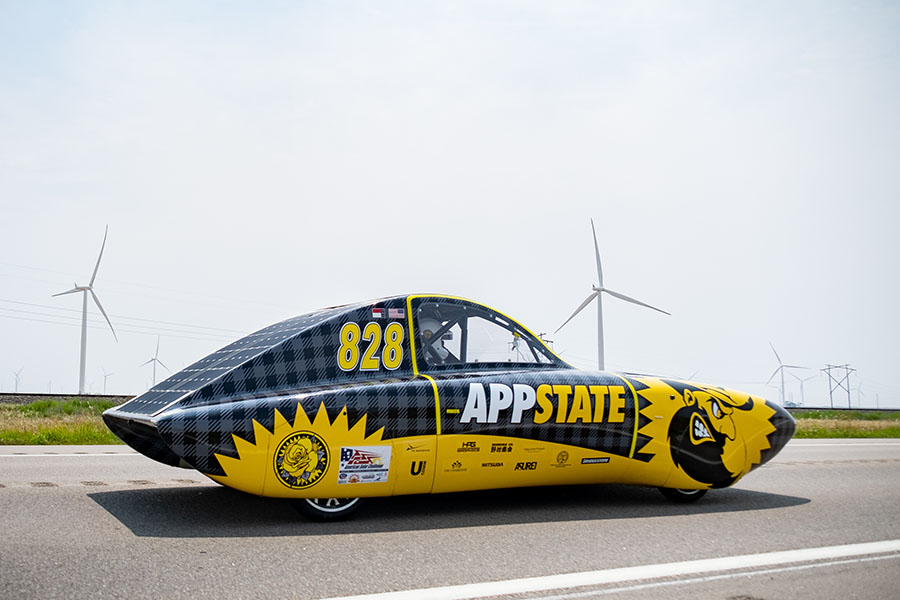
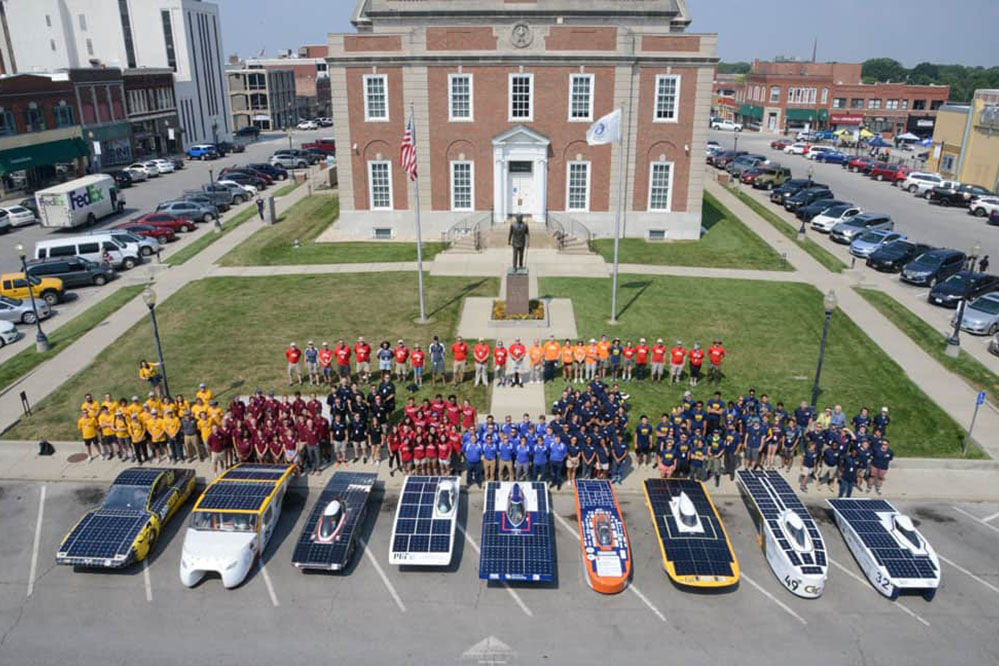
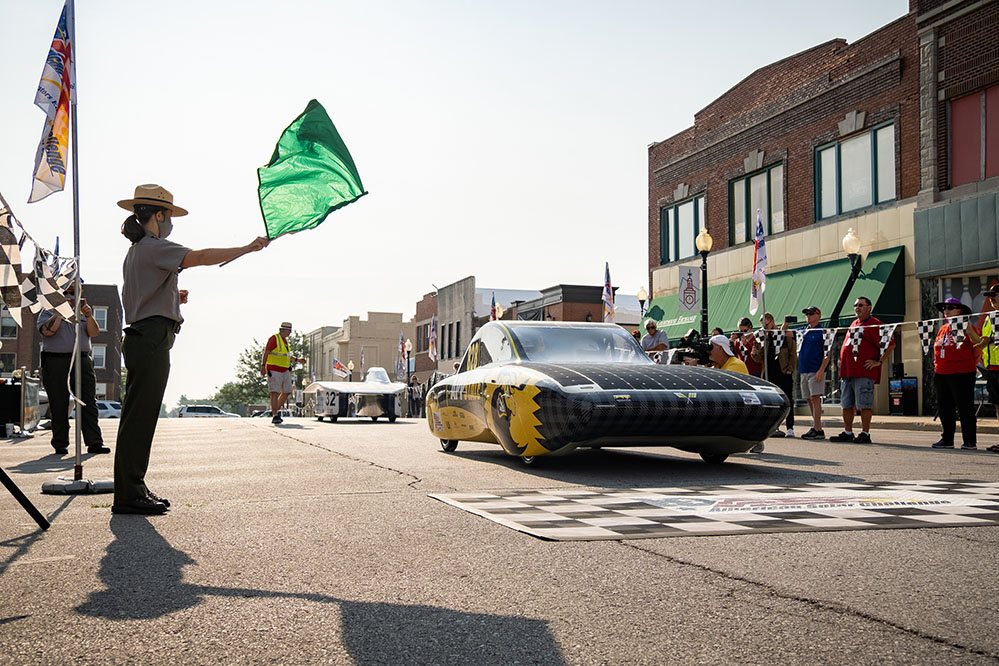
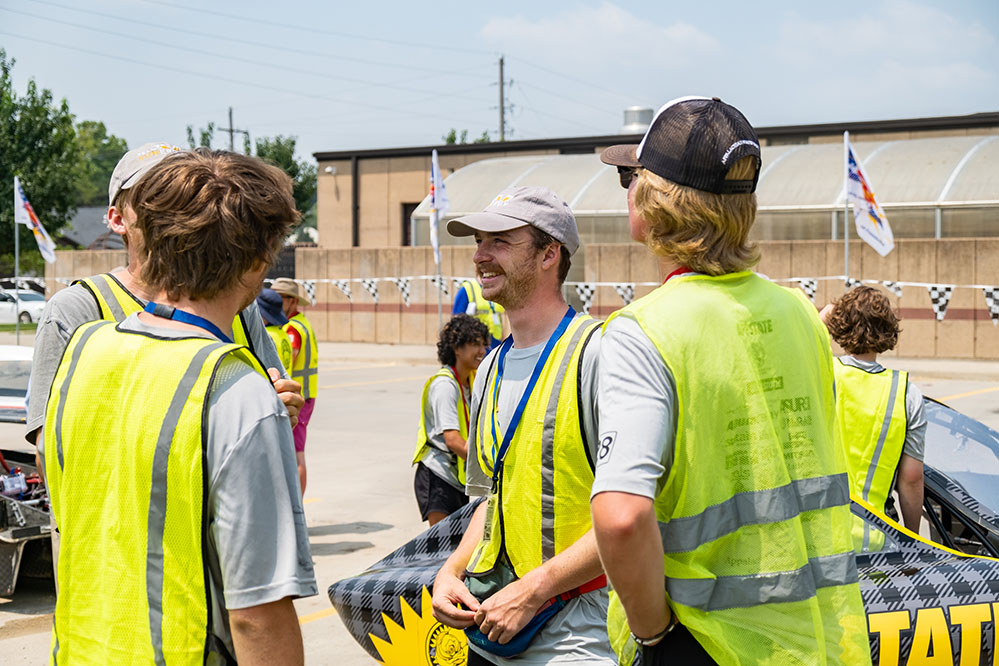
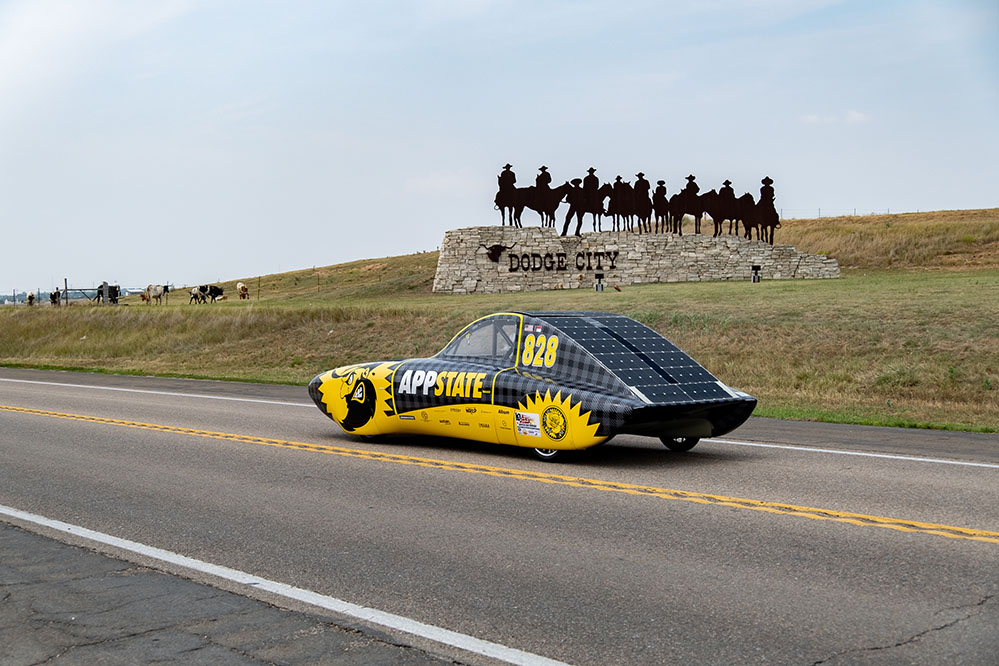
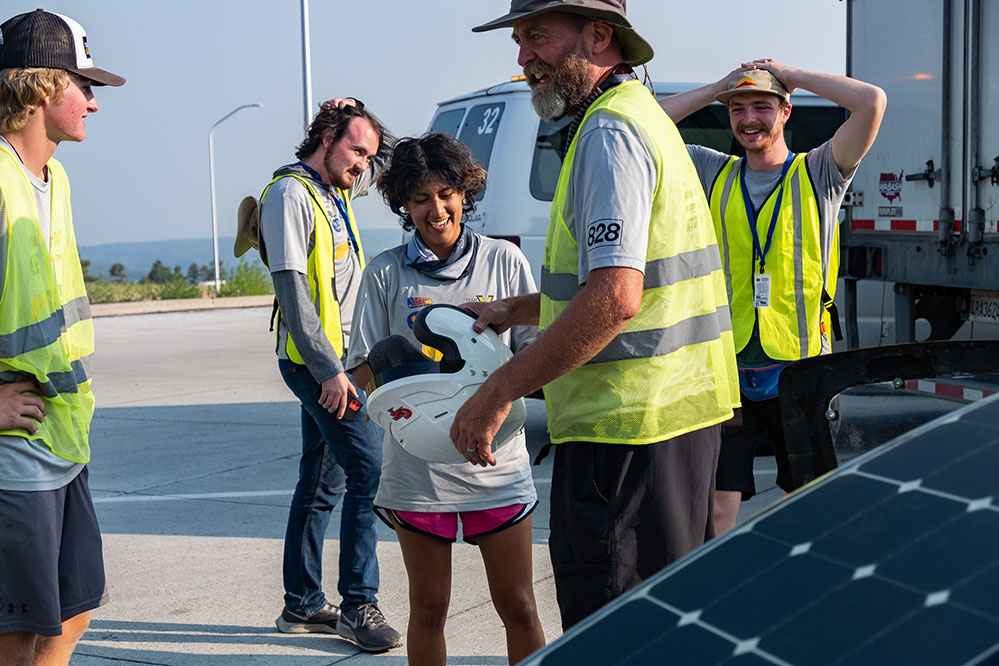
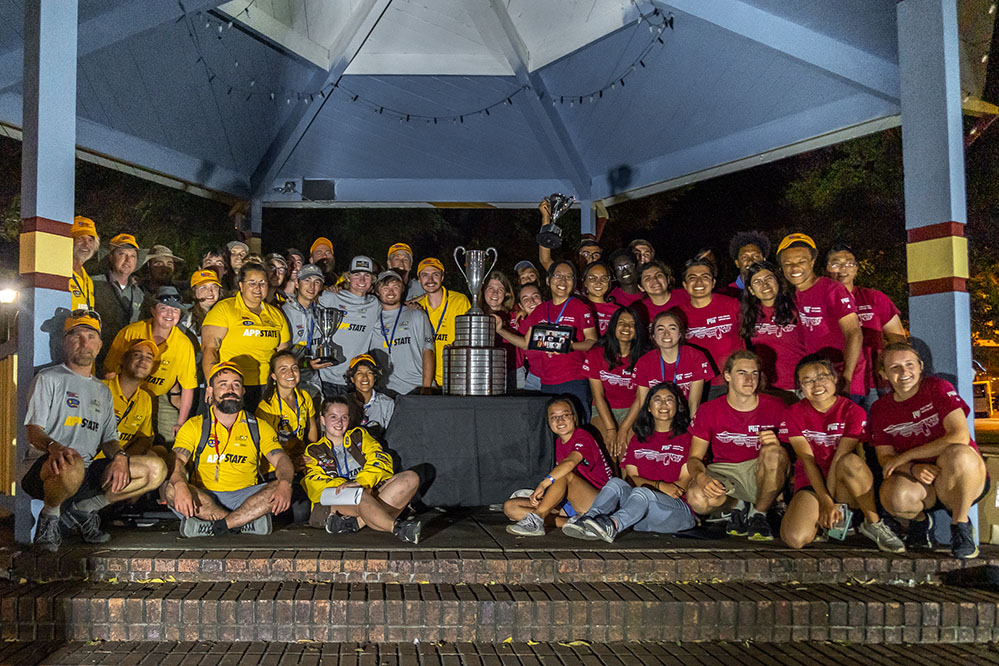
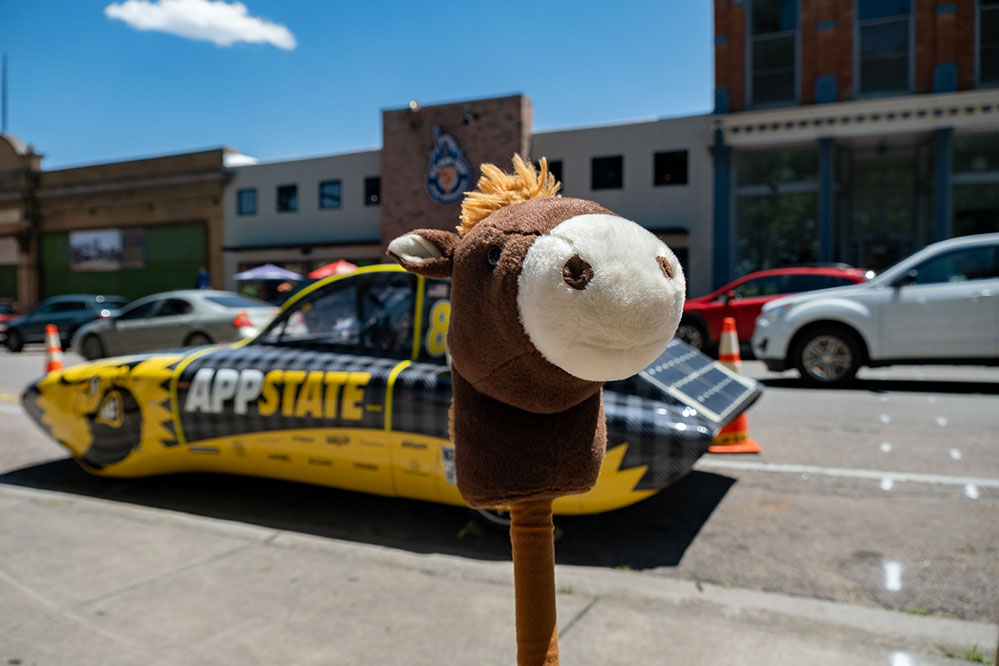








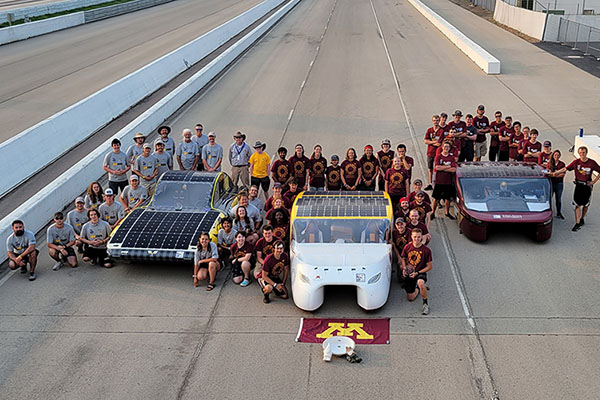
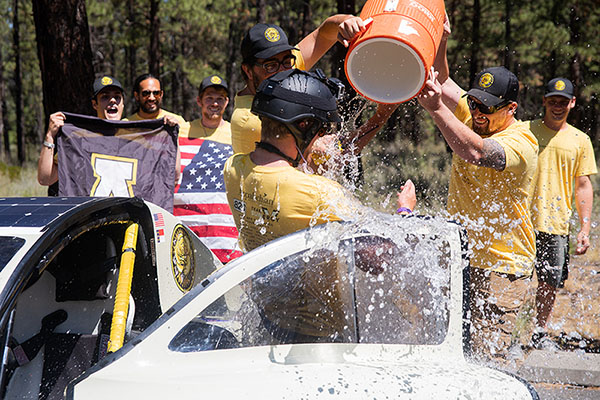
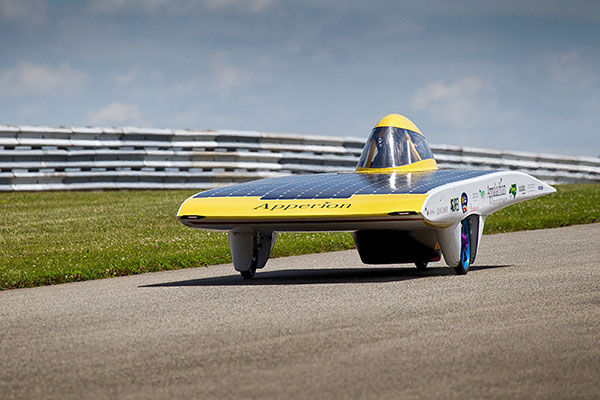



![How NCInnovation Is Rethinking Economic Development in North Carolina [faculty featured]](/_images/_posts/2026/02/rethinking-economic-development-600x400.jpg)







